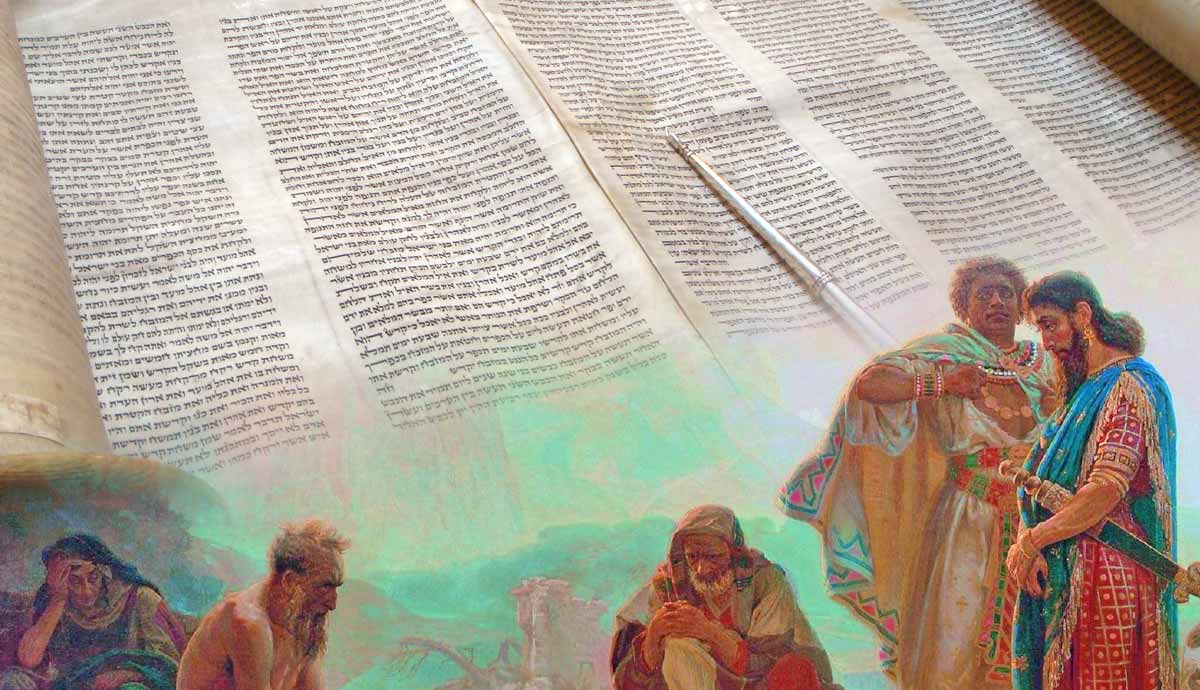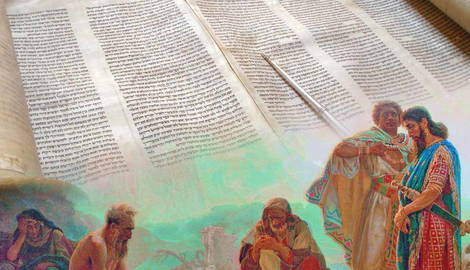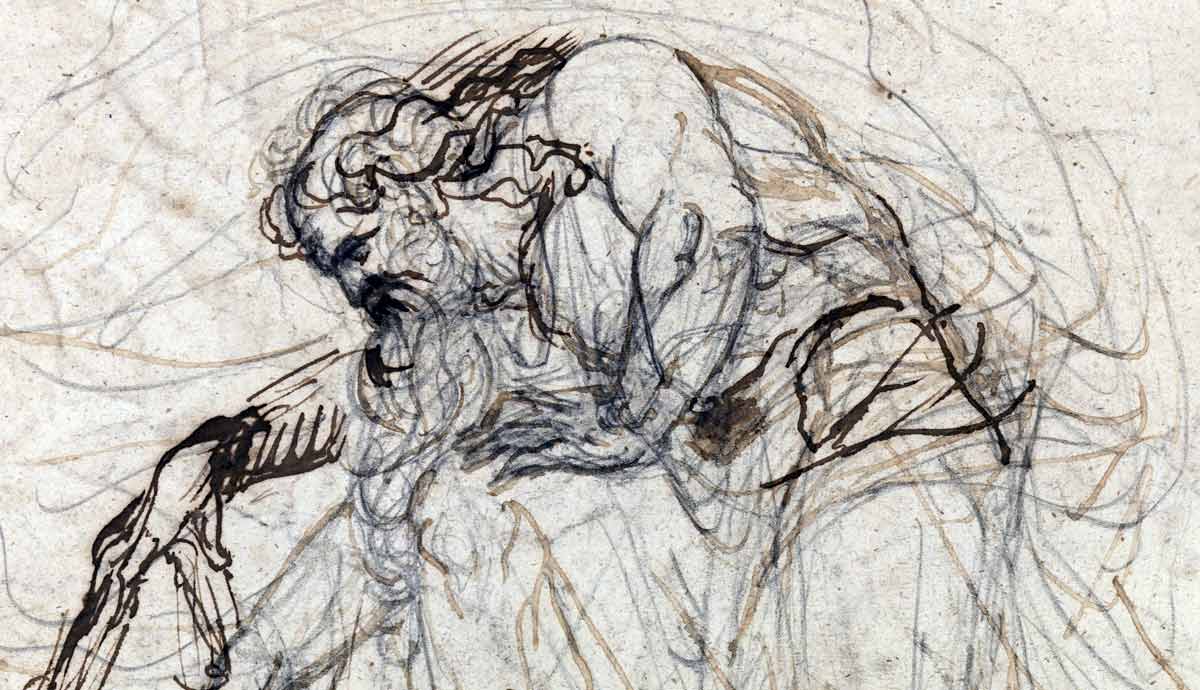
The Protestant Bible is a compilation of 66 books. Many people mistakenly think these Bible books appear in the order of writing. The order of the books in the Bible is not set according to when the authors wrote them but rather by what types of books they are.
The Old Testament has four sections. The first five books of the Old Testament are called the Law, the Pentateuch, or the Torah. After them, you find the historical books that follow a narrative style of the history of Israel from Joshua to Nehemiah. The wisdom literature follows next, from Job to Song of Songs. The last section, the prophets, can be divided into the major prophets (consisting of the books from Isaiah to Daniel) and the minor prophets (from Hosea to Malachi). So, which book from these four sections is the oldest?
The Book of Job

Contrary to popular belief, Genesis is not the oldest book in the Bible. Many scholars believe the Book of Job is a more ancient work than Genesis. It is impossible to definitively determine because no record exists of when each author wrote their book. Scholars take several factors into consideration to estimate the probable date the author of Job likely wrote the book. The following factors played a contribution:
The language and style of the Book of Job are similar to archaic works. Comparatively, most other Bible books are much younger. The poetic structure and idiomatic expressions that the author employed are typical of ancient Semitic literature. Furthermore, the themes and motifs are like other ancient Near Eastern literary works from a period that predates other Old Testament books. It contains ancient cultural and literary traditions that suggest that it may well be the oldest book in the Bible.

The Book of Job is unique in that it does not reference any specific historical event that hints at the date of authorship. It provides no context about the Israelites, which points to a period prior to the development of an Israelite identity. Many scholars believe that the Book of Job plays off in a period between the Flood narrative and the time of Abraham, thus after Genesis 8 but before Genesis 12.
The Dead Sea Scrolls support an ancient date for the Book of Job. Manuscript fragments discovered in clay jars at Qumran indicate that the community there already considered the Book of Job an ancient document. We should note that there may have been a significant passage of time between Job’s suffering (if he was a historical figure) and the time of the writing of the Book of Job. The story of Job could have been an oral tradition for many centuries before the author decided to record it in writing.

The Hebrew Bible, called the Tanakh, has a different order than in the Old Testament most Christians are used to. Its sections are the Law (or Torah), the Prophets (or Nevi’im), and the Writings (or Ketuvim).
Job is included with the Ketuvim in the Tanakh, but with the wisdom literature in the Old Testament. This division is due to the thematic and literary nature of the Book of Job. Without a definite historical setting, it would be problematic to place the book in a sequential order among other books that narrate the history of Israel. With its poetic and philosophical character, the Book of Job would best fit with works that also contain those characteristics, such as the Psalms, Proverbs, Ecclesiastes, and Song of Songs.
There are scholars who believe the author penned the Book of Job in the exilic period. The content, themes, and style of the book, as well as the lack of references to the Israelites, seem to contradict such a late date.

No one can definitively state that Job is the oldest of the Bible books. It is, however, undoubtedly one of the oldest Bible books based on internal and external evidence that suggests it has ancient origins. The fact that it is timeless in setting may indicate that the content teaches universal principles about the nature of human suffering. The lesson of the book is applicable to all people in all periods.
The Pentateuch or Torah

Readers often consider Genesis the oldest Bible book because it contains the narrative of Creation and the origins of man. The narrative of the content, however, does not determine the age of a work. If Genesis was indeed a single work, it dates to at least shortly after the period of Genesis 50, the chapter that describes Joseph’s death, embalming, and burial. That would mean the authorship of Genesis dates to before the middle of the 17th century BCE, the estimated date for Joseph’s death. Most scholars oppose this view.
As with the Book of Job, the content of Genesis seems based on a much older oral tradition. According to Jewish and Christian tradition, Moses was the author of Genesis and the other books of the Pentateuch. Scholars strongly oppose this view. They propose that the authoring of the Pentateuch covers a much more extended period. They propose that the Book of Genesis results from combinations, editing, and redacting of several manuscripts at various times.
According to the JEDP theory, the Torah, or Pentateuch, is a compilation of four distinct sources: the Yahvist (J) source, the Elohist (E) source, the Priestly (P) source, and the Deuteronomist (D) source. Scholars date the latest of these sources to the 5th century BCE or later. It resulted in a much later date for the compilation of the Book of Genesis than most would have thought. It would have been a post-exilic text of which the oldest part, the Yahwist source, is dated to the 10th century, some seven hundred years after Joseph’s death.
Such a late date would allow the Enuma Elish text to have been the driving force behind the creation narrative. Enuma Elish is a Babylonian creation narrative that may have caused the Jews to create a counter-narrative in which their God created the world.
Psalms

The Psalms are a compilation of songs, poems, and other literary works from various authors. Some psalms claim King David as their author, but others seem to have much older origins. Psalm 90, for instance, is attributed to Moses. If this is correct, then Psalm 90 could have been written three centuries before those of David. It would, however, not be the oldest by any means.
Psalm 104 has much in common with the Book of Job. Both speak to themes such as creation and providence while echoing ancient Near Eastern hymns glorifying divine power and creativity. Both refer to the Leviathan, which points to an origin set beyond more recent Old Testament psalms. Similarly, Psalm 29 depicts the power of God in a thunderstorm, reminiscent of Canaanite and Mesopotamian storm-god hymns. It would also suggest an ancient origin for this psalm.
Some scholars dispute such an old date for the Psalms, pointing out that Psalm 74, which also refers to Leviathan and related themes often associated with ancient cultures, carries the name of Asaph, a contemporary of King David. Other scholars believe all the psalms date to the Second Temple Period. These are ongoing debates that are far from settled.
Arguing About Age

So, which is the oldest? Job, the Pentateuch, or certain psalms? Most scholars do not consider Genesis 1 to 11 as historical. They believe it is a myth that developed partly as a reaction to the Enuma Elish creation story. To them, the biblical creation story is a late development traceable to the 5th century BCE. If so, there would not be an oral tradition predating the Abrahamic tradition of Genesis.
The linguistic and literary style of the Book of Job points to an earlier origin when compared to Genesis. The references to cultural practices in Job also indicate that it is older than the Genesis narrative. Job gives no indication of an Israelite identity, while Genesis forms the basis for it. These are strong arguments in support of the claim that Job is older than Genesis.
A counterargument is that the exploration of theodicy (the problem of the existence of suffering and evil) in Job is much more advanced than in Genesis, pointing to a later date for the origin of the former. Those who accept the first eleven chapters of Genesis as a historical narrative will claim it as the trump card for the oldest narrative.
A couple of the psalms show similarities with Job in theme and content, which points to them being much older than most of the other psalms. Their origins may have been similar in time to literary works of Canaanite and Mesopotamian origin. Whether these psalms are older or more recent than the Book of Job is impossible to determine.
When we evaluate sections from Bible books, the Song of Deborah (Judges 5) may be another contender. Some scholars argue it dates from around the 11th or 12th century BCE.
Conclusion

Considering the three contenders discussed in this article, it would be safe to say that Job seems like the oldest book as a complete volume. Scholars tend to provide a late date for the compilation of Genesis and Psalms. Individual psalms may be as old as Job, if not older, but determining a definitive date is impossible. Even if we were to accept Moses as the author of the Torah, the Book of Job seems to be an older literary work.










